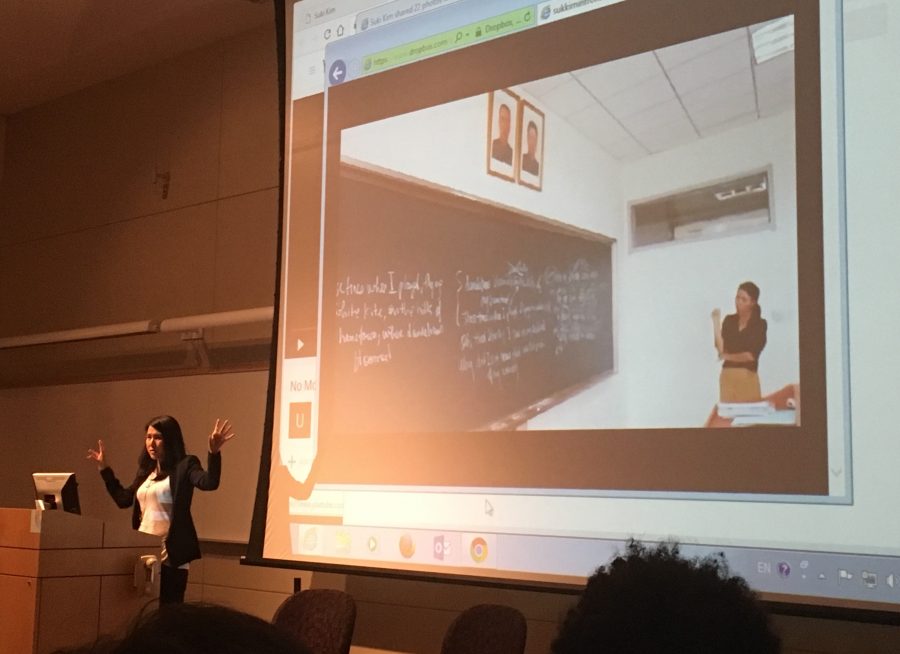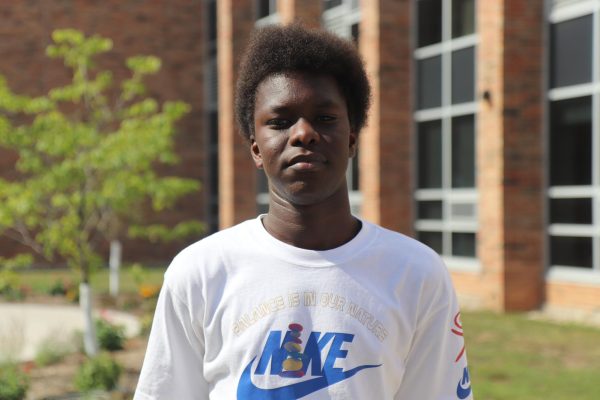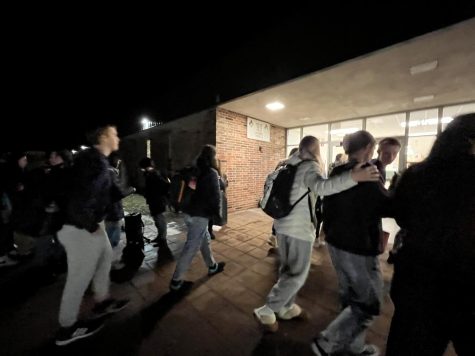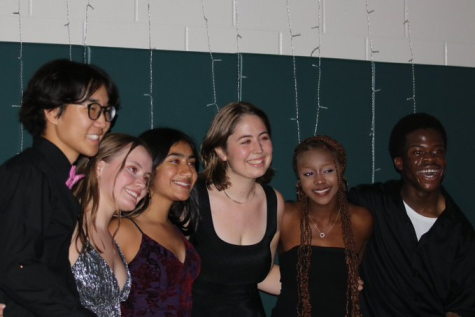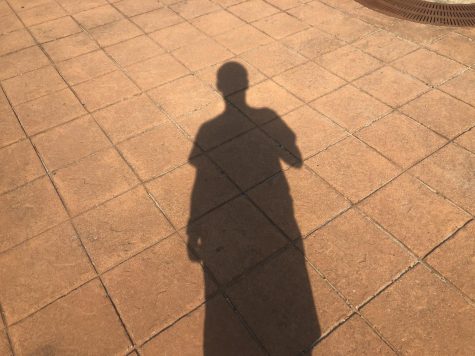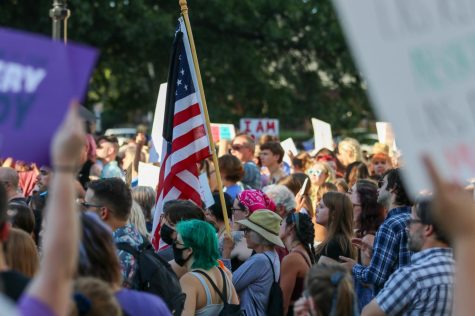Suki Kim visits Iowa City
Esteemed investigative reporter Suki Kim shares her story of writing undercover in North Korea at the Iowa City Book Festival.
October 19, 2016
Over a hundred people gathered in the rows of the HLN Auditorium on Sunday, October 9th to listen to a one-of-a-kind investigative journalist tell her cautionary and heart wrenching tale. All eyes and ears were focused intently on Suki Kim, the only writer ever to go live undercover in North Korea. Her bestselling novel, Without You There is No Us, narrates her time with the sons of the country’s most elite, carefully disguised as an English teacher.
Nowadays, Kim is a contributing editor for the New Republic, but life wasn’t always so simple for her. Born in South Korea, she was forced to move to the United States at age 13, separating her from much of her family. This event greatly inspired the idea for Without You There is No Us.
“I was curious about North Korea, and I wanted to know what happened to missing family members,” Kim said, “I come from a family who was separated by war on both sides.”
Once the idea was in place, Kim just needed to find a way to get to North Korea, and she found it in a pro-North Korean organization in the Asian community of New York City. With this organization filled with extremists — some who had even been banned from South Korea — Kim set out with 20 others on her first trip to North Korea, the first of many for this ambitious journalist.
Chosen as a delegate for the American youth that supported North Korea, Kim was thrown into a world like none she had ever seen before: a world of famine, bare lands, freezing temperatures, and no electricity.
“I just wept,” Kim says of her eight nights , “I never saw anything like it.”
“How quickly we became prisoners, how quickly we gave up our freedom, how quickly we tolerated the loss of that freedom, like a child being abused, in silence.”
— Suki Kim, Without You There is No Us
Kim was not discouraged by her first impression, however, and she was more than determined to get the story of this isolated world out.
“My uncle was taken to North Korea in the war, and the first time I went there I thought there was no way he survived it,” Kim said sadly, remembering reasons for her dedication to this story. “Stories like that never got out; I just thought about those people.”
Another factor for Kim’s intentness was the other things she saw on the news about North Korea. The last divided nation in the world, North Korea is constantly stereotyped, and Kim recognized this. “I felt like I needed to break the archetypes,” she said.
Despite cliches about the country, North Korea’s harsh negatives did not make appearances in headlines. “The unbelievable violence does not show up in the news,” Kim said, going on further to say that journalists can’t really talk about it. “[Journalists] can only talk about vague reality.”
In 2011, Kim applied for a teaching job in North Korea, a place she was no longer a stranger to. She was hired as an English teacher in a school for the sons of North Korea’s elite. To celebrate North Korea’s “year 100”, all universities were shut down, and students were forced to get jobs. Only certain ones were allowed to attend the school that Kim now taught at. Spending six months with 270 students and 29 other teachers, Kim began her project.
One astonishing aspect of this university was its lack of privacy. The faculty and students were watched 24/7, the campus was built in such a way that wherever you go, you’re seen, and every conversation was overheard. “It’s almost impossible to build relationships,” Kim said, “Trust could get you killed. It is the most unbelievably controlled system.”
Though there was always the fear of developing relationships, that didn’t stop Kim from forming a strong bond with her students. “I didn’t imagine the kind of closeness we had was possible.” said Kim.
With dedication comes risk, and Kim was well aware of this when she began to pursue the writing of Without You There is No Us. She knew the extensive consequences of getting caught yet continued warily. As for secrecy techniques, Kim would write passages on a computer and either hide them in 100 pages of school curriculum or transfer them all onto a USB that she kept either on herself, in her classroom, or hidden around the campus.
All these precautions payed off, however. In 2015, the 320 page tale was published, and the praise erupted. Described as “remarkable”, “daring”, and “chilling”, Without You There is No Us put Suki Kim on the map. Now, she travels the world giving talks like the one at HLN auditorium, teaching adults, teenagers, and children alike that not only should risks be taken for something you believe in, but they should be encouraged.


